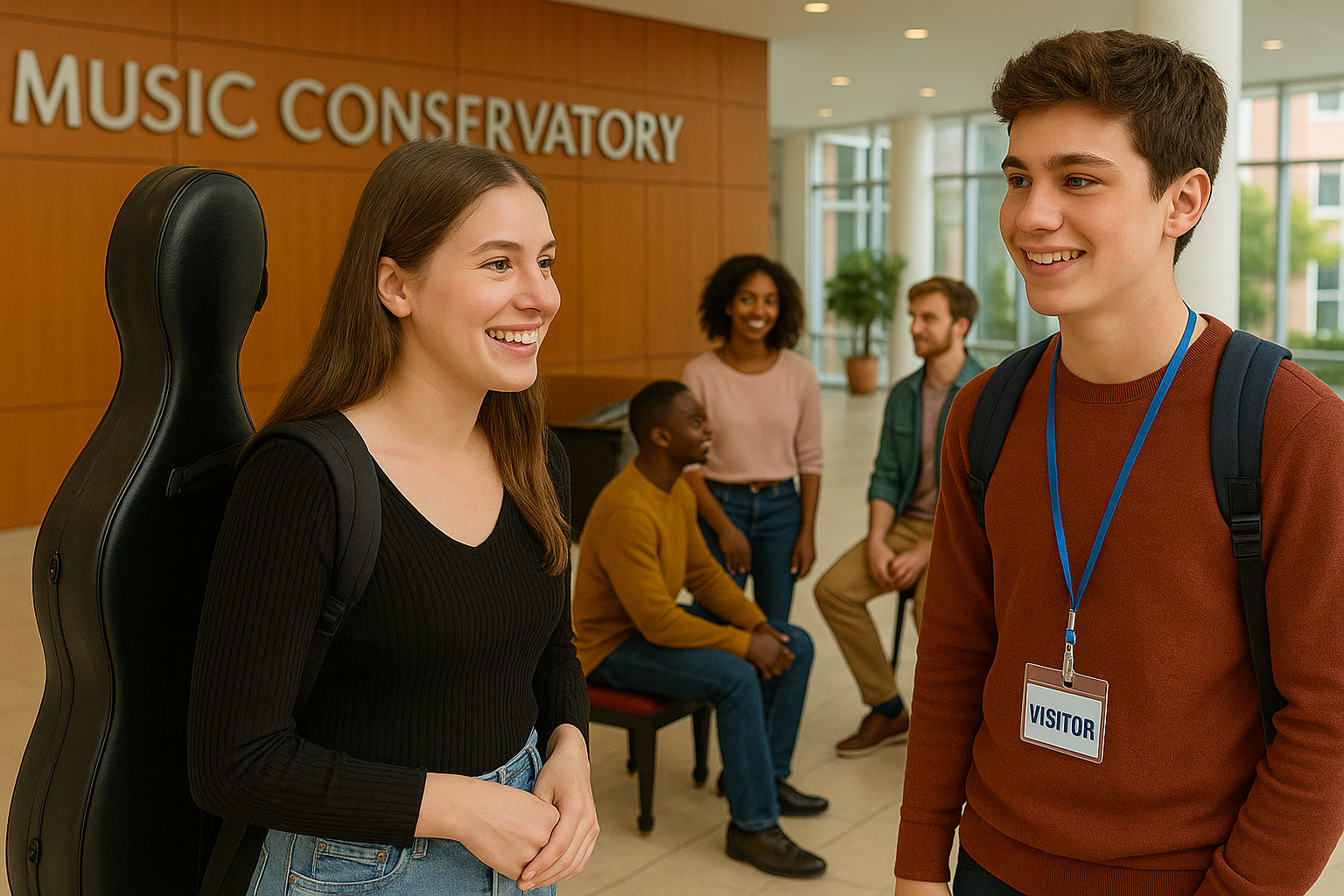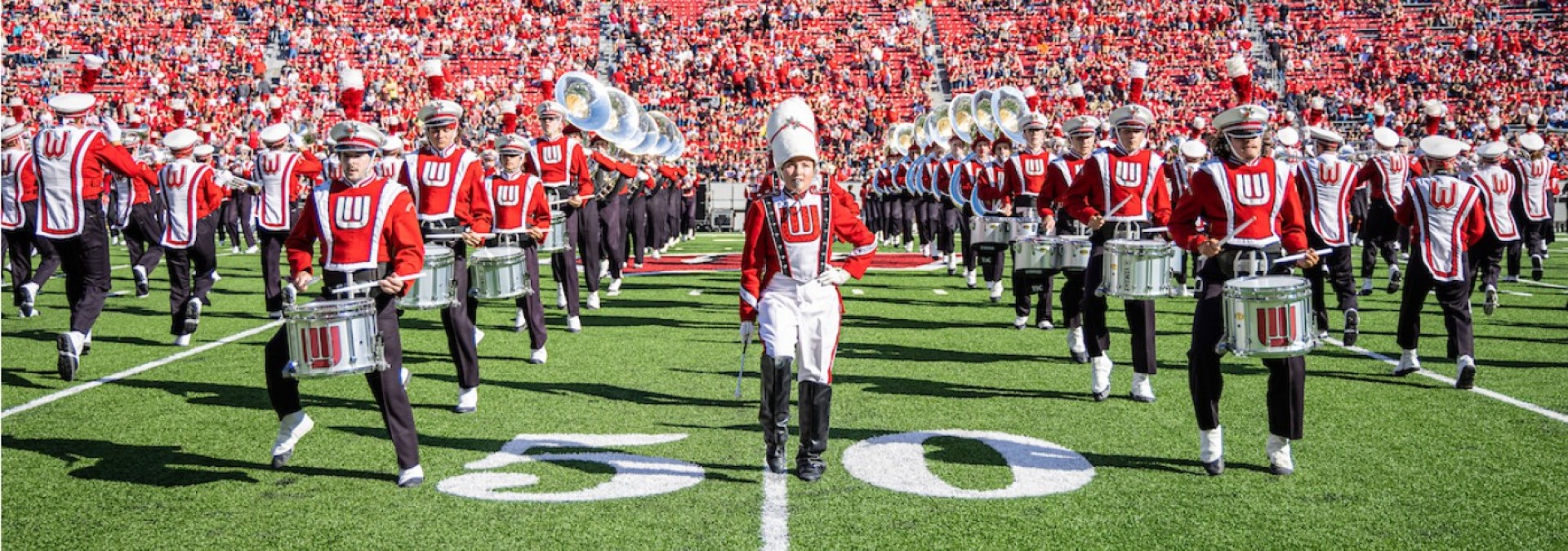So the day has finally come. You’ve circled the date on your calendar. You’ve looked up the weather. You’ve got a notebook in your bag, your questions queued up, and your best pair of “serious-but-still-me” shoes on your feet.
You're headed to your first college visit—not just as a student, but as a musician. And that changes everything.
Visiting a college as a future music major isn’t just about checking out the dorms and grabbing a free T-shirt from the bookstore. It’s about listening for the right notes—in the practice rooms, in your conversations, and in your own gut. Here’s how to make it count.
Start With the Sound
Before you get dazzled by architecture or swayed by a charming student tour guide, head straight to the School of Music (or College of Fine Arts). You’re not just picking a campus—you’re picking a soundscape. You want to hear:
- Practice rooms alive with students who care.
- Ensembles rehearsing with focus and energy.
- Professors coaching, not just correcting.
Ask yourself: Would I thrive in this sound environment? If you feel your posture straightening just by walking into the building… that’s a sign.
Talk to the Right People
This is more than a photo-op day. It’s a chance to build your audition team and career tribe. Make time to speak with:
- Applied Faculty – the person who teaches your instrument/voice
- Ensemble Directors – especially if you want to participate in marching band, wind ensemble, or vocal jazz
- Music Education or Performance Advisors – they’ll break down degree tracks and expectations
- Current Students – they’ll tell you what really goes on behind the recital posters
Ask them:
- “What makes this music program unique?”
- “How do students find performance or teaching opportunities here?”
- “How much private instruction or mentoring do you actually get?”
Trust the vibe. You’ll learn more from a 5-minute hallway conversation with a senior music major than from a polished brochure.
Explore the Whole Campus—but Through a Musician’s Eyes
- Where are the practice rooms, and how many are there?
- Is the concert hall inspiring? Acoustically good?
- Is there a music library or recording studio you’ll get to use?
- How far is the music building from the dorms or dining hall?
Music students often spend long hours in one building—so the location, layout, and culture of the space matter. You want it to feel like a second home.
One More Thing: Set Expectations with Your Parents
Before the visit begins, have a respectful talk with your parents or guardians. Let them know:
“This visit is a discovery day—for me. I really want to focus on listening, observing, and imagining myself here. I’d love your support in letting me lead the day, ask my questions, and reflect at my pace.”
Of course, they’ll have thoughts and questions too—but when they let you take the lead, you get the clarity you need. Encourage them to write down their impressions separately and talk about them after the visit. This isn’t just about their comfort level—it’s about your future.
Attend Something Live
If you can, plan your visit during a student recital, choir concert, or band rehearsal. Seeing real students perform in real time tells you more than any recruitment video ever could.
Pay attention to:
- The level of musicianship
- The body language of the conductor
- How students support each other
- The diversity of repertoire and performers
Can you see yourself on that stage? That’s a powerful moment of clarity.
What to Look for in the Details
- Scholarship opportunities – especially for performance, marching band, or music education
- Double major or minor flexibility – if you’re exploring other interests
- Career support – are there student teaching, recording, or gig opportunities built in?
- Studio size – a trumpet studio of 3 students feels very different than one with 20
- Housing for music students – some colleges offer living–learning communities; yes, see if there are practice rooms in the dorms
How Should You Feel When You Leave?
Here’s your gut-check moment. When you walk off campus, you should feel something good. Maybe not butterflies-in-your-stomach magic, but certainly:
- Energized by possibility
- Curious to learn more
- Respected in your musical identity
- Excited to imagine yourself growing there
If you leave feeling overwhelmed, discouraged, or invisible, trust that too. Not every good school is a good fit for you. Your job is to find the one that feels like home base for your musical journey.
Final Note: You’re Not Just Visiting—You’re Beginning
This isn’t just a tour. This is the first step toward becoming the artist, teacher, conductor, composer, or performer you’re dreaming of becoming—even if you don’t have the full picture yet. It’s a beginning, not a box to check.
You might be walking across a stage four years from now in this very place—diploma in hand, instrument in your grip, your name announced over applause. That future doesn’t start the day you enroll. It starts now, with what you notice. What you feel. What you choose.
Because yes, you’ll take in facts: faculty bios, scholarship numbers, ensemble schedules. But more importantly, you’ll gather impressions that don’t fit in a spreadsheet:
- Did this place light a spark in you?
- Did you feel like you could fail here—and still be mentored?
- Did the people look tired or inspired?
- Can you imagine walking these halls at midnight after rehearsal, still humming a piece you love?
A great music program is not just about prestige or placement rates. It’s about people. It’s about atmosphere. And it’s about alignment—between who you are, and who this place can help you become.
So when you leave that campus, don’t just ask, “Did I like it?” Ask:
- “Did I grow today?”
- “Did I feel seen and heard?”
- “Did I sense possibilities and opportunities?”
If the answer is yes, you’re not just walking away with a tour badge—you’re walking away with clarity. And that is the most valuable thing you can carry on this journey.
Because this is about more than college. It’s about who you are when you show up—and who you’ll become because you did.


.png) ARTICLE GLOSSARY
ARTICLE GLOSSARY

.png)
.png)


.jpg)
.jpg)

.jpg)

.png)




.jpg)
.png)










.jpg)



.jpg)
.jpg)
.jpg)
.jpg)
.jpg)

.png)
.png)

